2020-2021 Lecture Series
Joshua Calhoun (University of Wisconsin-Madison) - "'Mark but This Fungi': Legibility, Interdisciplinarity, and Labor" - Annual Medieval and Renaissance Graduate Student Association Lecture
- Date: October 3
- Time: 4:00 p.m. EDT
- Location: Zoom
Abstract
How do we read the other forms of life that exist on and within a book—not just the metaphorical life forms such as that of the eponymous bloodsucking insect in John Donne’s “The Flea,” but also the material, microbial forms that persist on the page? This talk argues for the value of exploring book microbiomes and of making them more legible, but it also attends to the real, experiential,
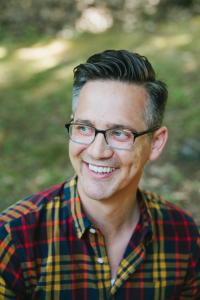
disciplinary challenges of that task. The work of interdisciplinary collaboration, like the work of close reading book fungi, is translational, so the latter part of this talk attends to the interpersonal and intellectual joys of collaborative scholarship as well as to the pitfalls and potential frustrations of such work.
Bio
Joshua Calhoun, Associate Professor of English and Faculty Affiliate with the Nelson Institute for Environmental Studies at the University of Wisconsin-Madison, specializes in Shakespeare, 16th- & 17th-century poetry, the history of media, and the environmental humanities. His work has been published in in PMLA, Shakespeare Studies, and Environmental Philosophy. His first book, The Nature of the Page: Poetry, Papermaking, and the Ecology of Texts in Renaissance England (UPenn Press, 2020), explores the ecopoetic interplay between literary ideas and the physical forms they are made to take as paper texts. Calhoun is also the co-founder of Holding History, a mentorship-driven public engagement project that involves hands-on training in book making and archival research.
Janelle Jenstad (University of Victoria) - "Walking through Time: Textual Archaeology and the Map of Early Modern London” - Symposium Keynote Lecture, Virtual/Digital Archaeology: Places, Buildings, and Environments
- Date: October 23
- Time: 4:00 p.m. EDT
- Location: Zoom
Abstract
MoEML’s current project, a versioned digital edition of John Stow’s Survey of London, is a textual walk through time. Stow’s Survey, inspired by The Perambulation of Kent, beats the bounds of each ward, treads each street and alley in words, and digs down through layers of history and platial change. In describing places across time, this text offers extraordinary topographical, toponymical, and prosopographical riches. While Stow’s 1603 Survey is often treated as a source of historical
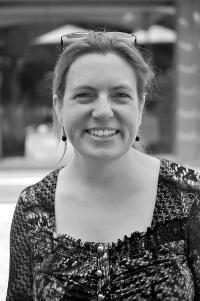
information about the city, the posthumous editions prepared by his literary successors are given little attention. The 1633 Survey continues the history of London, tracks changes to buildings and organizations, and adds layers of commentary to a text already temporally and historically layered. Janelle Jenstad will take MoEML’s work on the Survey as a starting point for a discussion of the ways in which digital editing, the digital geohumanities, and linked open data are revitalizing historical and literary understandings of the early modern and providing new teaching and research opportunities.
Bio
Janelle Jenstad is Associate Professor of English at University of Victoria, Director of The Map of Early Modern London, and PI of Linked Early Modern Drama Online. With Jennifer Roberts-Smith and Mark Kaethler, she co-edited Shakespeare’s Language in Digital Media (Routledge). She has edited John Stow’s A Survey of London (1598 text) for MoEML and is currently editing The Merchant of Venice with Stephen Wittek and Heywood’s 2 If You Know Not Me You Know Nobody for DRE. With Mark Kaethler, she is coordinating the world’s first anthology of mayoral shows (MoMS). Recent articles have appeared in Digital Humanities Quarterly, Shakespeare Bulletin, and Renaissance and Reformation. Recent chapters appear in Teaching Early Modern Literature from the
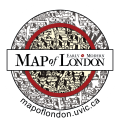
Archives (MLA); New Directions in the Geohumanities (Routledge); Early Modern Studies and the Digital Turn (Iter); Placing Names: Enriching and Integrating Gazetteers (Indiana); Early Modern Studies and the Digital Turn (Iter); and Making Things and Drawing Boundaries (Minnesota). For a full list, see janellejenstad.com.
Brendan O'Neill and Aidan O'Sullivan (University College Dublin) - "Experimental Archaeology: Making, Understanding, Storytelling”
- Date: November 13
- Time: 4:00 p.m. EST
- Location: Zoom
Abstracts
Experimental archaeology can be defined as the (re)construction of past buildings, technologies, environmental contexts, and things, based on archaeological evidence, and their use, testing and recording as analogies, to create a better understanding of people's lives in the past, and their relationships with buildings, things and material culture. Experimental archaeology has been a part of the archaeological discipline since its origins, the earliest antiquarians often carrying out practical experiments with ancient tools to discern their use. It boomed again in the 1960s and 1970s, as part of the interest in archaeology in seeking scientific, replicable results to understand past technologies. In recent years, some have wondered if it is possible to have an experimental archaeology that is both ‘knowledge-focused’ and ‘experience-oriented’, and if we can give more weight to experience, or the sensory and emotional aspects of how people engage with material culture? Can we think about the “phenomenology of objects, the ‘feel of things’, the experience of buildings? This lecture will explore the research projects, undergraduate and graduate teaching, and public engagement activities of a university facility for experimental archaeology at University College Dublin. Through case studies of our own reconstruction of early medieval buildings, objects and technologies, we will investigate the many different ways that "making" helps with "understanding", and how "storytelling" about the past can engage with both archaeological and historical evidence, but also with our own experiences.
Attendees might be interested in exploring the work of CEAMC through the social media links below.
UCD Centre for Experimental Archaeology and Material Culture: http://www.ucd.ie/archaeology/ceamc
YouTube Channel: https://www.youtube.com/channel/UCl6r12tTQOtJr-ApBYyGgkw
Facebook: https://www.facebook.com/groups/UCDExperimentalArchaeology/?multi_permalinks=1362055387222582¬if_t=like¬if_id=1491996513462984
Twitter: https://twitter.com/EArchaeol
Instagram: https://www.instagram.com/ucd_experimental_archaeology/
Bios
Brendan O'Neill is an Assistant Professor in the UCD School of Archaeology. He was appointed in the summer of 2018 to develop and enhance teaching and research in Experimental Archaeology and Material Culture. He is a module coordinator on undergraduate and graduate level Experimental Archaeology modules as well as a Masters level module exploring Material Culture. Added to these he contributes to a number of other modules with individual formal lectures, workshops and hands-on, practical content. His teaching approach is heavily influenced by Active/Experiential Learning techniques, providing students with well rooted, deep learning on a range of topics. He is also very much focused on providing different and dynamic learning environments, providing a wide range of access points to education for students. Since 2013 he has been the Deputy Director of UCD's Centre for Experimental Archaeology and Material Culture (CEAMC). In this role he is responsible for coordinating the strategy and day-to-day running of CEAMC, generating and disseminating research and managing its outreach activities. He is also responsible for site space management, Health and Safety and Material procurement.
Aidan O'Sullivan is a Professor in UCD School of Archaeology. He was appointed to UCD as a College Lecturer in September 2000, promoted to Senior Lecturer in 2005 and to an Associate Professorship in 2014. He has been Head of UCD School of Archaeology (2012/2013) and is currently and has been previously Deputy Head of School (2011-2014, 2016-2019). He was elected a Member of the Royal Irish Academy (MRIA) in 2017, and is a Member of the Institute of Archaeologists of Ireland (MIAI), and was elected a Fellow of the Society of Antiquaries (FSA), London. Academic awards include an IRCHSS Senior Research Scholarship in 2002-2003, a UCD President's Research Fellowship in 2004-2005 and he was an invited Visiting Professor at Le Centre national de la recherche scientifique (CNRS) at the University of Rennes I, France in May 2010. His research is focused on three principal areas: early medieval Ireland in its northwest European context, wetland archaeology and environments across the world, and experimental archaeology and material culture.
Pamela Smith (Columbia University) - "Making and Knowing in Sixteenth-Century Europe"
- Date: March 5
- Time: 4:00 p.m. EST
- Location: Zoom
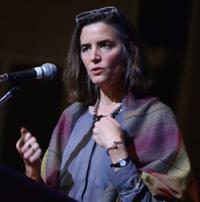
Abstract
An anonymous late sixteenth-century French technical manuscript, Ms. Fr. 640 (now held by the Bibliothèque nationale de France), has been the subject of research by the Making and Knowing Project since 2014. This intriguing manuscript provides important insights into the material, technical, and intellectual world of late sixteenth-century Europe, and sheds light on how and why nature was investigated, used in art, and collected and appreciated in early modern Europe. The laboratory reconstruction by the Making and Knowing Project of the technical and artistic “recipes” contained in Ms. Fr. 640 provides further knowledge about the manuscript, as well as of materials and processes, but it also raises a host of questions.
Bio
Pamela H. Smith, professor, specializes in early modern European history and the history of science. Her current research focuses on attitudes to nature in early modern Europe and the Scientific Revolution, with particular attention to craft knowledge and historical techniques. She is founding director of The Making and Knowing Project, founding director of The Center for Science and Society, and chair of Presidential Scholars in Society and Neuroscience.
Max Adams (Independent Scholar) - "The Wood Age: A Thought Experiment in Past, Present and Future Human Ecologies" - Annual Barbara A. Hanawalt Public Lecture
- Date: March 19
- Time: 4:00 p.m. EDT
- Location: Zoom
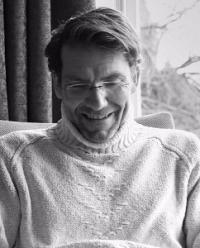
Abstract
Wood has been the primary technological material for almost all of human history. But compared to ceramics, stone and metals it is barely visible to archaeologists. A limited range of surviving artefacts, backed by careful use of ethnographic study, allow us to posit key developments in human/wood ecologies. But to construct a coherent narrative of what one might call the Long Wood Age, to render visible that which is invisible, requires creativity in physical and intellectual experimentation. In this paper Max Adams, who is both an archaeologist and a woodsman, explores some lines of enquiry.
Bio
Max Adams is a critically-acclaimed author and biographer, an archaeologist, traveller and writing coach. His journeys through the landscapes of the past and the present, of human geography, music, art and culture are a continuing source of inspiration in his writing.
Born in 1961 in London, he was educated at the University of York, where he read archaeology. After a professional career which included the notorious excavations at Christchurch Spitalfields, and several years as Director of Archaeological Services at Durham University, Max went to live in a 40-acre woodland in County Durham for three years.
Max continues to manage woodland, and still lives on the north-west edge of County Durham, in a slightly more conventional dwelling. Max is also a musician, playing drums, harmonicas, Appalachian dulcimer and low-key whistle.
Luke Pecoraro (Jamestown-Yorktown Foundation) - "From Festival Park to Museum: Six Decades of Living History at the Jamestown Settlement"
- Date: April 23rd
- Time: 4:00 p.m. EDT
- Location: TBA
Abstract
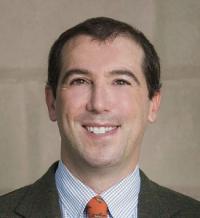
Founded in 1957 to commemorate the 350th anniversary of the first permanent English settlement in North America, the Jamestown Festival Park made living history its signature approach towards interpreting the events of 1607 though immersive outdoor exhibits. The field of historical archaeology was just beginning to coalesce as a discipline, and historical accounts combined with 16th and 17th c. illustrations guided how James Fort, the three replica ships, and Powhatan’s Lodge were constructed. The archaeological discoveries of the original site of Jamestown as well as other 17th c. sites across Virginia and contemporary Native American sites led to a richer interpretation of material culture that led to an endurance of the Festival Park to survive beyond the 1950s and become the Jamestown Settlement Museum.
This presentation will highlight the changes in archaeological interpretation of artifacts and site patterns that have influenced the changing landscape of the Jamestown Settlement Museum’s living history programs and the growth of the permanent collection over its sixty-plus years of existence. The skilled craft of the Settlement’s interpretive staff will also be discussed in the context of rediscovered industrial arts as revealed through archaeology.
Bio
Luke Pecoraro is a historical archaeologist and director of curatorial services at the Jamestown-Yorktown Foundation. He is responsible for research, collections management and exhibit development at Jamestown Settlement and the American Revolution Museum at Yorktown, two nationally accredited living-history museums of 17th and 18th-century Virginia administered by the Foundation.
Pecoraro has worked in cultural resource management archaeology in the mid-Atlantic, the Chesapeake area, and New England on a variety of prehistoric and historic sites, including several years as a Jamestown Rediscovery staff archaeologist at Historic Jamestowne. He previously served as a research archaeologist for the First Colony Foundation, searching for the 16th-century “Lost Colony” on Roanoke Island, and a team member of the Survey and Landscape Archaeology on Montserrat (SLAM) project in the British West Indies.
Pecoraro, who was named one of the National Trust for Historic Preservation’s “40 Under 40: People Saving Places,” holds doctoral and master’s degrees from Boston University and an undergraduate degree from Virginia Commonwealth University.
**POSTPONED** Mark Rankin (James Madison University) - "More Bibliographical Aspects of John Foxe"
- Date: April 26
- Time: 4:00 p.m. EDT
- Location: TBA
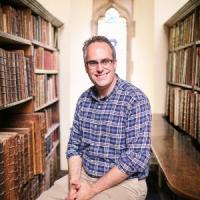
**With this lecture honoring former CMRS faculty affiliate John King, who passed away last year, the Center has decided to postpone until the Autumn term, when we can hopefully gather together in person to remember Professor King.**
Abstract
Current knowledge of the problems faced during production of John Foxe’s Acts and Monuments in the printing house of John Day, the Elizabethan printer, is based upon the pioneering research of Julian Roberts, with revision and expansion by John N. King, Elizabeth Evenden, and Thomas S. Freeman. This lecture responds to these scholars by focusing upon Day’s approach to the correction of error, especially through his use of slip-cancels, tiny scraps of paper which are intended for pasting over erroneous text, as well as his use of stop-press correction and the labeling of the book’s well-known woodcuts. I will suggest ways in which the bibliographical nature of successive editions of Foxe’s book overseen by Day is even more complex than previously described, and I will demonstrate in particular the nature of Day’s commitment to producing an accurate text. The argument adds to scholarly understanding of the goals and methodologies of both Foxe and Day. Bibliographical fluidity associated with John Day’s approach to error during production points toward the better understanding of textual fluidity within successive editions of Foxe’s work.
Bio
Dr. Mark Rankin regularly teaches and has published widely on Tudor literature, English Reformation literature and culture, and the early English Bible. He is contributing editor of Sermons at Paul's Cross, 1521-1642 (Oxford, 2017) and co-editor of Henry VIII and His Afterlives: Literature, Politics, and Art (Cambridge, 2009). He is currently completing a new census of surviving copies of the first four editions of John Foxe’s Acts and Monuments of these Latter and Perilous Days, and his critical edition of William Tyndale's The Practice of Prelates (1530) is under contract with Catholic University of America Press.
He is the Principal Investigator of a National Endowment for the Humanities (NEH) Scholarly Editions and Translations Grant, 2016-19, on “The Independent Works of William Tyndale,” and has co-directed NEH Summer Seminars for College and University Teachers on "Tudor Books and Readers: 1485-1603" and "The Formation and Re-formation of the Book: 1450-1650.” He has held short-term research fellowships at the Newberry Library, the Huntington Library, and the Folger Shakespeare Library, and was Faculty Member in Residence for JMU's Semester in London Program during the autumn of 2013.
His articles have appeared in Renaissance Quarterly, English Literary Renaissance, Erasmus Studies, the Journal of Medieval and Early Modern Studies, The Library, Transactions of the Cambridge Bibliographical Society, Reformation, Studies in English Literature, The Yearbook of English Studies, and The Sixteenth Century Journal. He regularly offers presentations at the Renaissance Society of America's annual meeting, and at the Sixteenth Century Studies Conference. He is a member of the Bibliographical Society and the Renaissance English Text Society.
If you require an accommodation such as live captioning or interpretation to participate in any of these events, please contact cmrs@osu.edu. Requests made by about 10 days before the event will generally allow us to provide seamless access, but the university will make every effort to meet requests made after this date.
